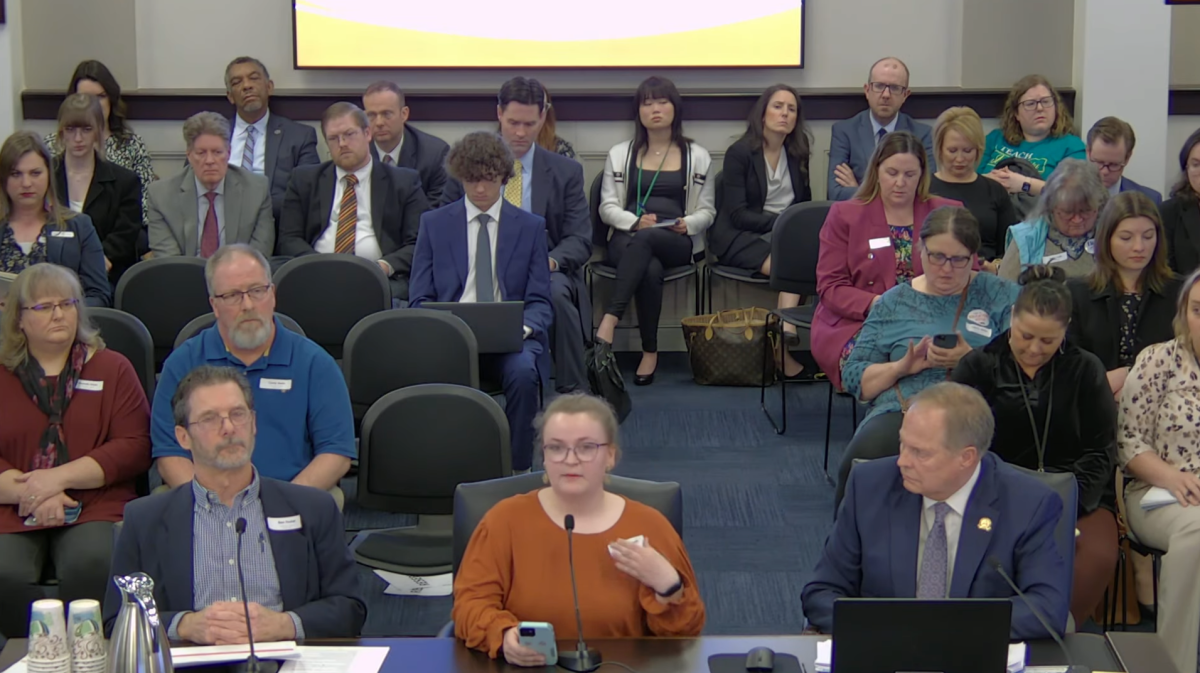One of several bills this session taking aim at diversity, equity and inclusion initiatives (DEI) passed the Senate Education committee Thursday and will now head to the Senate.
Under Senate Bill 6, Kentucky’s public colleges and universities couldn’t ask students or staff to endorse certain concepts that the bill describes as “discriminatory.”
Sen. Mike Wilson, R-Bowling Green, the bill’s sponsor, said the state needs to ensure taxpayer funds are promoting educational excellence and rigor to help students.
“I have filed this bill on behalf of students and faculty whose First Amendment rights are being violated, and face a shifting, stifling, politically correct academic atmosphere,” Wilson said at the hearing.
According to SB 6, these are a few examples on topics universities cannot offer training on or ask students to promote.
- “An individual, by virtue of the individual’s race or sex, is inherently privileged, racist, sexist, or oppressive, whether consciously or subconsciously”
- “Be penalized, discriminated against, or receive any adverse treatment due to the individual’s refusal to support, believe, endorse, embrace, confess, act upon, or otherwise assent to one or more divisive concepts.”
- “An individual should feel discomfort, guilt, anguish, or another form of psychological distress solely because of the individual’s race or sex.”
A new version of this bill introduced included universities that offer new student orientations must provide:
- the full text of the First Amendment, including a discussion on the importance of free speech and viewpoint diversity;
- historical examples demonstrating the need to protect free speech, “including unpopular speech;”
- the university’s policies to protect free speech, and
- written and verbal notice that if there is an issue, the Kentucky Attorney General can sue universities in civil court over a violation of this bill.
Opponents of the bill said it would impede academic freedom and make campuses less welcoming underrepresented groups.
Rebekah Keith, a University of Kentucky student, shared her support. During her second interview for an resident adviser position, Keith said she was asked about her pronouns and where she has seen injustice on UK’s campus.
Keith said she believes that there are only two genders. When she didn’t get the job, she received feedback.
“I was told that because I am white presenting I probably had not had to think about how I present myself unlike other non-white students,” she said.
Kumar Rashad, 2024 high school teacher of the year, highlighted an FBI report finding that anti-Black hate crimes are the most common hate crimes on K-12 and college campuses.
“A vote for this bill is an anti-Black vote, because you’re essentially saying that I’m not allowed to express myself,” he said. “My reality doesn’t matter.”
DEI initiatives are about expanding college access to people of all backgrounds, including those who are underrepresented, said Aaron Thompson, president of the Council of Postsecondary Education,
“We need more faculty and staff of color, to be honest … we need more men from Clay County Kentucky to go to college and get a degree,” Thompson said. “We need more adult learners — that’s in our DEI policy.”
Sen. Gerald Neal, D-Louisville, voted no, saying it would prevent Kentucky from moving forward.
“We are in the midst of racism right now,” Neal said. “It affects people differently. We’re all individuals, but to begin to create constructs that either suppress and do not ameliorate the situation — what can I say?”
The measure heads to the Senate floor.




























































































